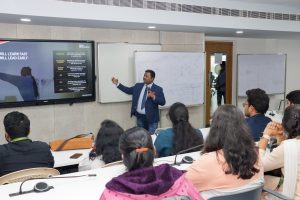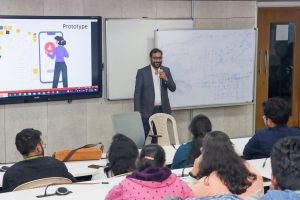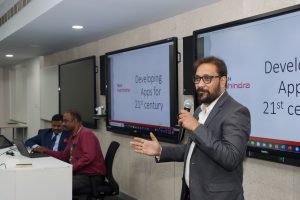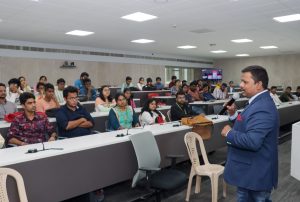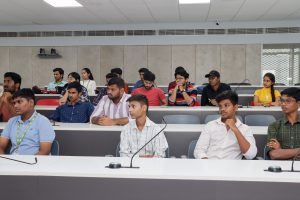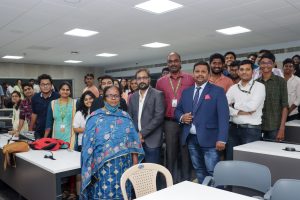Current Happenings
- A Business Rendezvous with Tech Mahindra December 21, 2022
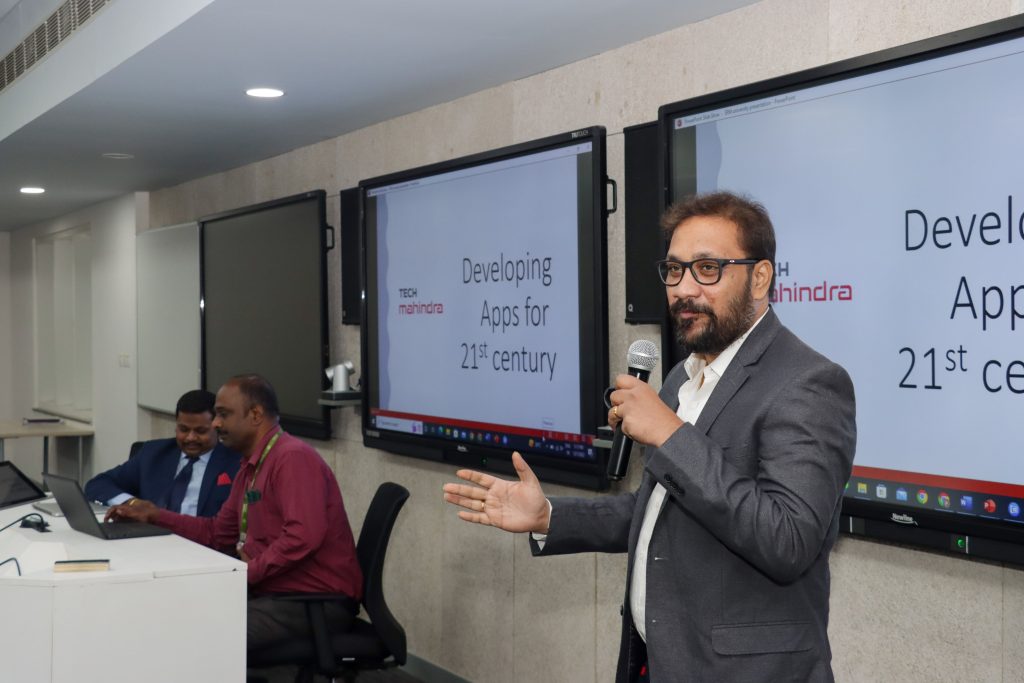
Paari School of Business upholds the importance of connecting business knowledge with hands-on market experience to develop competent candidates with refined managerial skills, ready to tackle the challenges of the business world. Their consistent approach to conducting industrial talks and research invites business giants from across the world to engage in insightful discourse with the students of management. The recent industry talk organised by the school invited a team from Tech Mahindra, the multinational information technology services and consulting company to provide exposure to practical compatibility of their knowledge to the requirements demanded by profession. The talk featured executives from the renowned enterprise addressing students on relevant trends and recent strategies in the market.
Mr Srinivas Reddy, Sr. Recruitment Manager and Vijayawada Location Leader, BFSI & Healthcare and Life Science’s Pan India Recruitment Leader held an engaging talk on the topic, “People Management Influence on IT Industry Business”. Mr Reddy highlighted how to connect with industry professionals and the influence of business networks in the IT business. He also discussed the importance of connecting business knowledge with the technical domain. Mr Kalyan Yelisetty, Manager – Product Development and Testing operations, also addressed the students in the evolving trends in the field of product development and testing in his lecture on “Developing products for the 21st century”. The Industry talk also threw light upon placement opportunities for business students.
The Industry talks and lectures aim at assisting students in aligning themselves with the latest requirements of the industry and sharpening their business acumen with expert discourses on pertinent topics related to the field. The Paari School of Business manifests this vision and upholds the need for bridging the gap between business management and technological advancements.
Continue reading → - Successful Food-Tech Venture hoists Jaswanth to Newer Heights! December 19, 2022
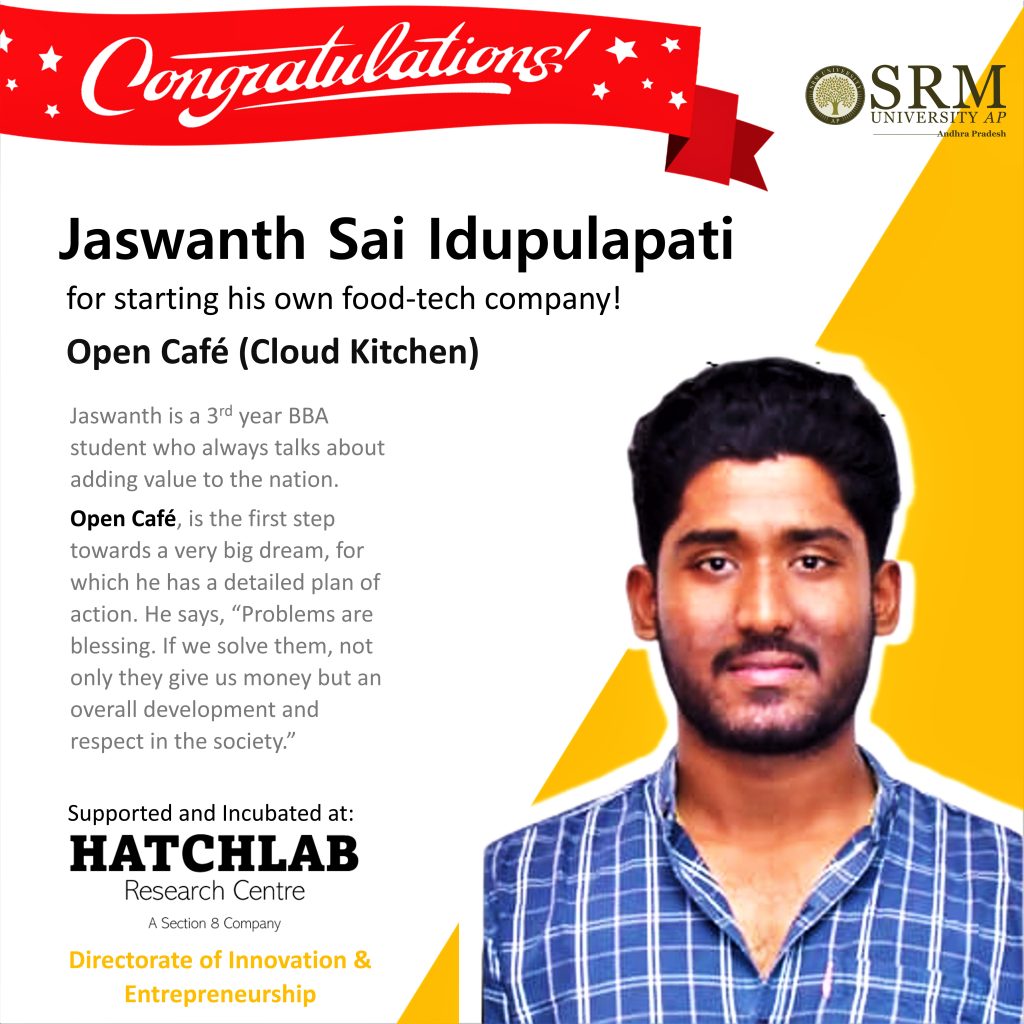
“The best way to predict the future is to create it”. Jaswanth Sai has proved to be a living and breathing manifestation of this quote with his determination and hard work. The Directorate of Entrepreneurship and Innovation is pleased to announce that Jaswanth Sai Idupulapati, a 3rd year BBA student, has successfully started his own food-tech company, Open Cafe, a cloud kitchen enterprise. Cloud kitchens are centralised, licensed commercial food production facilities where one to dozens of restaurants rent space to prepare delivery-optimised menu items. Jaswanth, an enthusiastic student of the Hatchlab Research Centre had started his business with an investment of Rs. 5000/- and today his turnover is more than 20L per month for a business that was started just three months ago!
“We invested Rs. 5000 and brought a van full of biriyani outside the main gate of our university. Hours passed and not a single sale happened. Those moments were not only depressing but also terribly demotivating. But as a leader, I had to rise up! We immediately changed the pricing strategy and shared the same via WhatsApp groups. In the next 45 minutes, we were left with empty vessels and a handful of cash. Profit was less; the learning and our confidence levels were mountain high,” Jaswanth excitedly mentioned about his first day of business.
As of now, Open Cafe caters to more than 1000+ students from SRM AP and VITAP, with quality food items that are delivered with a caption – 15 minutes delivery. Jaswanth has 15 employees and a big renovated kitchen, generating employment and thousands of satisfied customers.
His dedication and hardcore willpower allowed the materialisation of his idea into reality. Congratulations to Jaswanth Sai for his astonishing achievement!
Continue reading →


